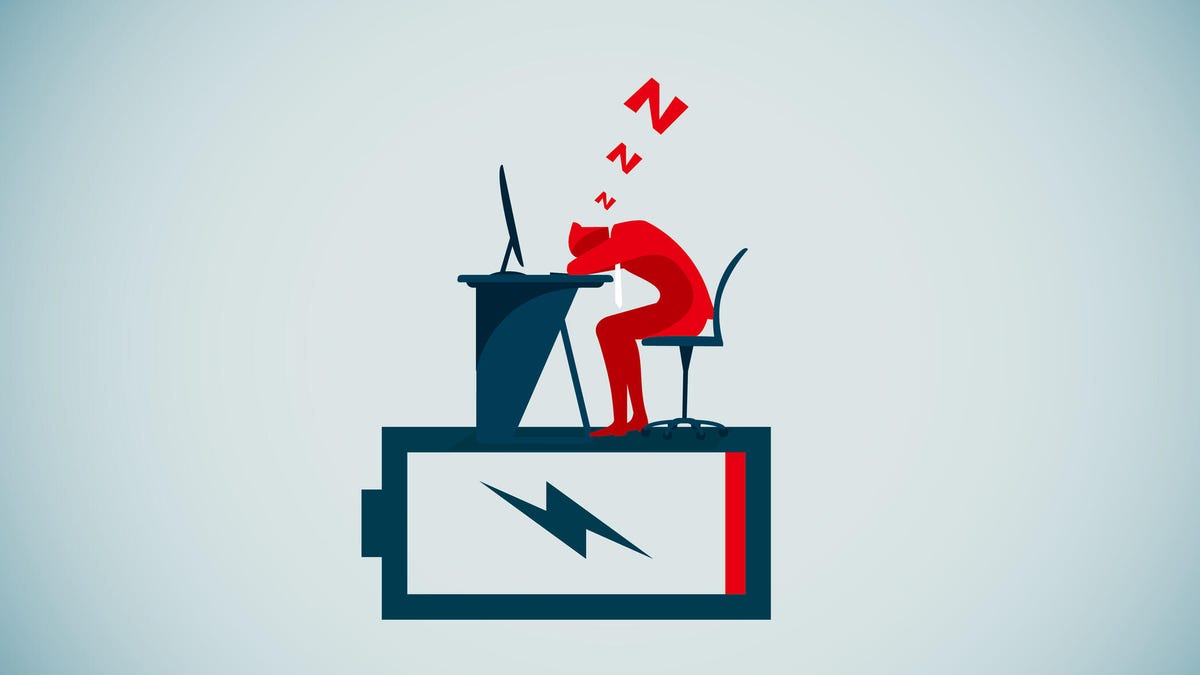4 ways to wake up after a bad night's sleep, no coffee required
Feel more refreshed and energized without the dreaded caffeine jitters.

Beat fatigue with these healthy tips.
There's nothing worse than spending the night tossing and turning and missing out on precious sleep. The next worst thing is trying to function the following day without downing a gallon of coffee just to stay awake. And if you do resort to caffeine when you're feeling drained, chances are you'll get a temporary jolt and then crash. Ready to break the cycle?
Caffeine is something that affects everyone differently, but for some people the negative side effects just aren't worth the temporary period you feel more alert and focused. "Caffeine is a stimulant and a stressor on the body. Many people drink coffee for the jolt of adrenaline and cortisol that it provides," says Brigid Titgemeier, a functional medicine registered dietitian.
Read more: The best mattress for 2020: Casper, Purple, Nectar and more
"[Caffeine] can leave you feeling more stimulated and motivated, but also comes with feelings of being wired and tired. For many people, this caffeine high is followed by energy dips or crashes throughout the day," Titgemeier says.
If you're over the caffeine highs and lows and ready to try some more sustainable and healthy ways to feel more awake, keep reading below for Titgemeier's advice for nutrition and other lifestyle tips for more energy.
1. Drink water
I'll bet you've heard about the importance of drinking enough water, but it bears repeating. One of the potentially negative effects of dehydration is fatigue, so if you're already tired, hydration is your friend. At night, you also lose fluids when you're asleep, which can contribute to dehydration when you wake up.
"Dehydration is an extremely common cause of fatigue and cognitive impairment. Research has demonstrated that when you restrict fluids from a person, the most common symptoms include fatigue, increased sleepiness, confusion and decreased alertness," says Titgemeier. "Start your morning with a large glass of water to help support energy and cognition."
Eggs are a nutrient-dense choice to help boost your energy.
2. Eat healthy foods that support energy
When you're tired or groggy, the last thing you want to do is worry about whipping up a healthy breakfast. But the most convenient foods don't do any favors for our health. One way to help fight grogginess and fatigue is make sure you're fueling your body properly.
Titgemeier recommends focusing on nutrient-dense choices like eggs and smoothies. Both are quite simple to prepare, but will support your body better than a greasy fast food fix. "Egg whites contain protein and water, and the egg yolks are where you get all of the other nutrients such as CoQ10, vitamin E and other B vitamins. CoQ10 is an antioxidant that is essential for energy production, as are the B vitamins," Titgemeier says.
Making your own smoothies at home is relatively simple and inexpensive, and you can customize all of the ingredients to your preferences. "Smoothies are a great way to load up on nutrients and antioxidants in foods like berries, chia seeds and flax seeds that help to create steady energy throughout the entire day. I would specifically recommend adding a leafy green vegetable like spinach for a great source of B vitamins and alpha lipoic acid. Both of these nutrients are very important for energy production," Titgemeier says.
A simple walk can help boost your energy when you feel tired.
3. Exercise
While it's not a good idea to exercise while in a sleep deficit, you don't have to remain totally sedentary. In fact, incorporating gentle exercise like walking and stretching can help you feel more alert and refreshed, without taxing your body.
Just go easy on yourself -- pushing your body through a tough workout when you have not slept well is a recipe for burnout and feeling worse.
4. Take a power nap
When your body is screaming at you for more sleep , don't fight it. Taking a short power nap can help you feel more refreshed and energized if you do it right. The key to taking a nap and not waking up cranky and more exhausted is to take a shorter nap (about 20 minutes) and be sure to take it earlier in the day, or at least not close to when you normally go to sleep.

